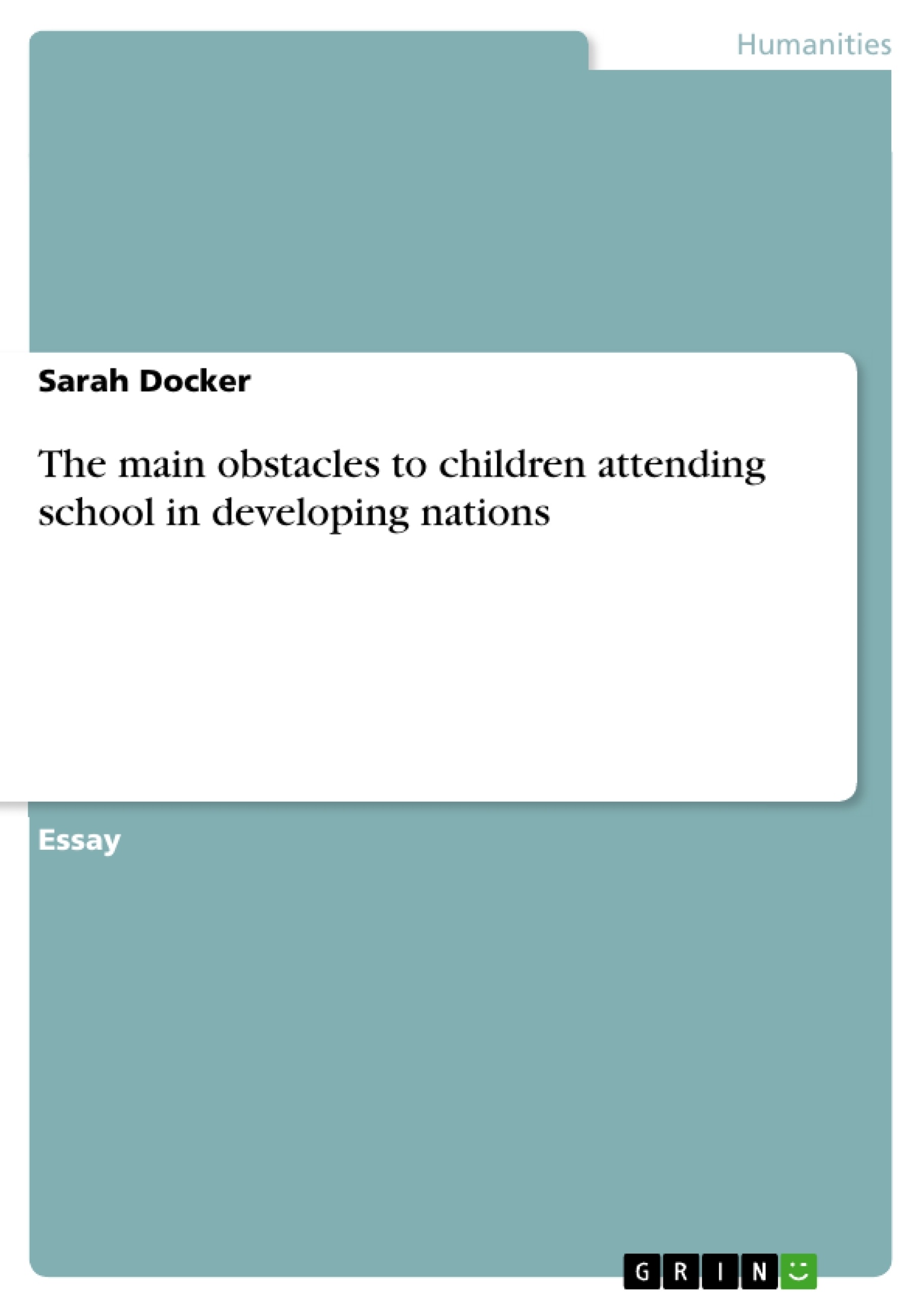“Get angry,” Tomasevski demands, “[and] help expose and oppose economic exclusion from education” (Tomasevski, 2006). This essay examines Tomasevski’s pressing call for indignation and action by uncovering the main obstacles to children attending primary school with a focus on the Sub-Saharan region. To preface this, it will first be established why education matters and is a human right reflected in international declarations. The essay will then narrow its effort into the economic direct, indirect and opportunity costs causing “the right to education [to] take a back seat” (ibid.).
In doing so, it will also consider what values, ideologies and priorities are underpinning the persistence of these costs and the consequential inequities and violations of children’s human rights. The discussion will be broadened to cover two other non-economic barriers to attendance, health and gender. This will serve to illustrate that “institutionalised economic exclusion” (ibid.) is not the only problem to tackle in order to ensure that all children are provided with the appropriate opportunities and environment to gain a quality and transforming education. Essentially, an integrated and comprehensive rights-based approach is necessary.
Inhaltsverzeichnis (Table of Contents)
- Introduction
- The Right to Education: Why It Matters
- The Economic Costs of Education
- Direct Costs
- Indirect Costs
- Opportunity Costs
- Non-Economic Barriers to Attendance
- Health
- Gender
- A Rights-Based Approach to Education
- Conclusion
Zielsetzung und Themenschwerpunkte (Objectives and Key Themes)
This essay investigates the obstacles preventing children from attending primary school, with a particular focus on the Sub-Saharan region. It examines the economic, health, and gender barriers to education, highlighting the urgent need for a comprehensive rights-based approach to ensure that all children have access to quality education.- The significance of education as a human right
- Economic costs of education, including direct, indirect, and opportunity costs
- Non-economic barriers to education, such as health and gender
- The role of ideologies and priorities in shaping education policies
- The necessity of a rights-based approach to education
Zusammenfassung der Kapitel (Chapter Summaries)
The essay begins by establishing the importance of education as a human right, citing international declarations and highlighting its role in expanding capabilities, fulfilling human rights, and promoting economic development. It then delves into the economic costs of education, outlining the direct costs of fees, materials, and transportation, as well as the indirect costs of poverty and the opportunity cost of lost income. The essay explores how these costs are exacerbated by ideologies and policies, such as neoliberal agendas and structural adjustment programs, which prioritize privatization and economic growth over social obligations. The essay then expands its scope to include non-economic barriers, discussing the impact of health issues and gender disparities on school attendance. Finally, the essay emphasizes the need for a comprehensive and integrated rights-based approach to education, recognizing that economic exclusion is not the only obstacle to ensuring that all children receive a quality education.
Schlüsselwörter (Keywords)
This essay focuses on the human right to education, exploring economic exclusion, direct and indirect costs, opportunity costs, health barriers, gender disparities, and the need for a rights-based approach to education.Frequently Asked Questions
What are the primary obstacles to school attendance in developing nations?
The main obstacles include economic exclusion (direct, indirect, and opportunity costs), health issues, and gender disparities, particularly in the Sub-Saharan region.
What is the difference between direct and indirect economic costs?
Direct costs refer to school fees, materials, and transport. Indirect costs relate to the overall poverty of the family, making education unaffordable even if tuition is free.
What does "opportunity cost" mean in the context of education?
Opportunity cost refers to the lost income or labor a family sacrifices when a child attends school instead of working or helping at home.
How do health and gender act as barriers to education?
Poor health prevents regular attendance, while gender ideologies often prioritize boys' education over girls', leading to systemic inequities.
What is a "rights-based approach" to education?
It is a comprehensive strategy that views education as a fundamental human right and aims to remove all institutionalized barriers to ensure quality education for all children.
- Citation du texte
- Sarah Docker (Auteur), 2014, The main obstacles to children attending school in developing nations, Munich, GRIN Verlag, https://www.grin.com/document/288232



